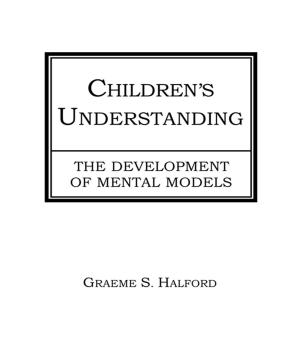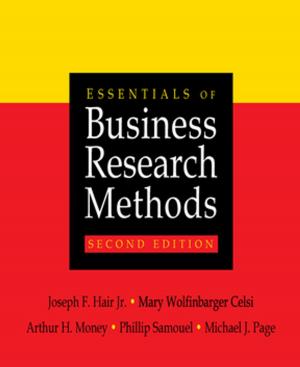Free Associations
Memories of a Psychoanalyst
Nonfiction, Health & Well Being, Psychology, Psychoanalysis| Author: | Booker T. Washington | ISBN: | 9781351310826 |
| Publisher: | Taylor and Francis | Publication: | January 18, 2018 |
| Imprint: | Routledge | Language: | English |
| Author: | Booker T. Washington |
| ISBN: | 9781351310826 |
| Publisher: | Taylor and Francis |
| Publication: | January 18, 2018 |
| Imprint: | Routledge |
| Language: | English |
First published in 1958, Free Associations is the story of the early life of Ernest Jones. It was prepared for publication by his son Mervyn, who contributed an epilogue covering the period from 1918 (when this book ends) through Jones's death in 1944. This new edition includes a reflective introduction by Mervyn Jones, in which he writes about Ernest Jones "as I could not write in 1958."
One of the pioneers in psychoanalysis, Ernest Jones was active in advancing the status as well as the development of the field. In the wider forum of public opinion, he made himself an advocate of the new science-the Huxley, he liked to say, to Freud's Darwin. Huxley had ranked below Darwin in creative originality, and had filled the role of the faithful and indispensably useful follower; and Mervyn Jones believes both Freud and Jones were pleased by the comparison. In addition to his important public and organizational roles (as president of the British and International Psychoanalytic Associations), Jones made significant contributions to psychoanalytic theory. When the Nazis invaded Vienna, he saved much of the assets and archives of psychoanalysis, at great personal risk, and made the arrangements for Freud to come to London.
In his introduction, Mervyn Jones presents a sometimes surprising portrait of a thoroughly conventional man in what was then an unconventional profession. He describes tensions and conflicts among the early Freudians, and situates Freudianism with other theories that laid claim to scientific truth in the late nineteenth century.
Free Associations presents an evocative picture of Wales and London at the turn of the century, and describes the developing profession of psychoanalysis. It is a dramatic story of success and failure, and of a young man and how he responded to the new, strange ideas of Freud. This book fills in our understanding of the history of psychoanalysis and its founders.
First published in 1958, Free Associations is the story of the early life of Ernest Jones. It was prepared for publication by his son Mervyn, who contributed an epilogue covering the period from 1918 (when this book ends) through Jones's death in 1944. This new edition includes a reflective introduction by Mervyn Jones, in which he writes about Ernest Jones "as I could not write in 1958."
One of the pioneers in psychoanalysis, Ernest Jones was active in advancing the status as well as the development of the field. In the wider forum of public opinion, he made himself an advocate of the new science-the Huxley, he liked to say, to Freud's Darwin. Huxley had ranked below Darwin in creative originality, and had filled the role of the faithful and indispensably useful follower; and Mervyn Jones believes both Freud and Jones were pleased by the comparison. In addition to his important public and organizational roles (as president of the British and International Psychoanalytic Associations), Jones made significant contributions to psychoanalytic theory. When the Nazis invaded Vienna, he saved much of the assets and archives of psychoanalysis, at great personal risk, and made the arrangements for Freud to come to London.
In his introduction, Mervyn Jones presents a sometimes surprising portrait of a thoroughly conventional man in what was then an unconventional profession. He describes tensions and conflicts among the early Freudians, and situates Freudianism with other theories that laid claim to scientific truth in the late nineteenth century.
Free Associations presents an evocative picture of Wales and London at the turn of the century, and describes the developing profession of psychoanalysis. It is a dramatic story of success and failure, and of a young man and how he responded to the new, strange ideas of Freud. This book fills in our understanding of the history of psychoanalysis and its founders.















